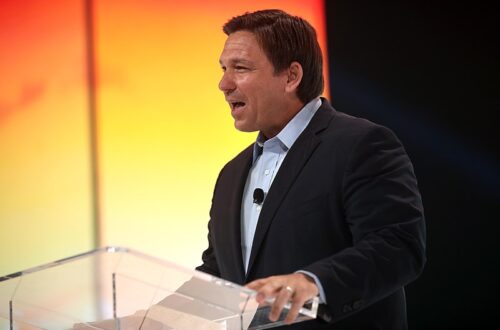As the U.S. continues to grapple with COVID-19, another epidemic has been gripping the U.S. since the 1990s: opioids.
In addition to the harmful side effects that come with drug usage, a byproduct of injecting these substances is the STIs that come from using dirty syringes.
To combat this issue, Jacksonville City Councilman Michael Boylan proposed a ‘safe syringes’ program for the city in September.
The measure, attempting to help cut down on HIV and other STI transmission that can occur when drug users exchange used syringes, would allow drug users to swap dirty needles for clean ones. Moreover, these proposed sites can serve as a place for STI testing, to educate people on the dangers of dirty needles, and provide other outreach.
The goal of similar measures — to move people toward rehabilitation and cooperation with the government and private actors — is a large part of why the central idea of this program is one of few in Florida with a history of bipartisan support.
In 2019, Gov. Ron DeSantis signed SB 366, a measure based on a successful needle swap program from Miami-Dade. In the Florida House, the bill was then headed up by a bipartisan team with only three votes cast against it in the House while the Senate passed it unanimously. The bill allowed for statewide expansion of the Miami-Dade pilot program with optional adoption.
How do other states fare?
This idea has long been considered taboo by conservatives, so no such initiative had success in Florida before 2019. With time, however, opinions have shifted for the better. The adoption of such a program has been shaky nationally, though there have been some improvements in recent years as support becomes increasingly bipartisan.
Per the CDC, 44 states, one tribal nation (Cherokee Nation), and one territory (Puerto Rico), urgently should have a program to effectively lower the risk of HIV or hepatitis due to infection via syringe. In reality, though, only 42 states, Puerto Rico and D.C. actually have one. This determination comes from an assessment by the CDC of whether or not a program was needed, regardless if one already existed.
The remaining six states and four territories have simply not requested such an examination by the CDC.
However, a lack of a formal request doesn’t correlate with a lack of need. Looking at Texas, the largest of these unexamined states, there is still clearly a need. According to a Texas DSHS survey taken in 2015, 67% of respondents reported sharing injection equipment.
While the state has launched other initiatives to combat this type of dangerous needle sharing and drug use, no statewide-approved program exists. However, a pilot program in Bexar County from 2020 and a Texas House bill proposed this year have fostered hope of a statewide expansion.
While this incremental approach may eventually lead to nationwide adoption, as time goes on and more use dangerous substances, more may become infected with various STIs and subsequently die.
Moreover, this approach serves to disenfranchise entire communities within states. Many states, even with such programs, seem to be underserving some communities. Particularly in some rural areas, there is a community-wide stigma about having an STI. This negative perception further prevents those affected in these communities from seeking and receiving aid.
In some states, only a few of the major cities have a program provider people can use; in others, resources may only be available at the state capital. For instance, per data collected by the North American Syringe Exchange Network, Utah only has such a program in Salt Lake City. Indicative of a trend, New Mexico only has a similar program in Albuquerque, in Oklahoma only in Tulsa, and in Pennsylvania, only the southern half of the state has such programs.
What is the takeaway?
As stated before, the United States is grappling with drug abuse and an opioid epidemic that has consequently led to an increase in HIV diagnoses. If we are going to make any substantive change, this style of the initiative must be rolled out nationwide.
The lack of a federal, concrete program is in large part due to extant War on Drugs policies. Politicians seemingly fear supporting such a program as it could potentially imply the federal government supports drug use.
Such moralistic pearl-clutching only serves to endanger people.
In 2015, after there was a massive spike in HIV cases in Indiana, several legislators spearheaded legislation allowing federal support of any part of a syringe exchange that is not the actual syringe. Their efforts allowed the formation and growth of many similar programs, but this effort can and should be expanded.
To address the opioid epidemic and associated STI issues, the federal government needs to expand this limited program to include not only funding for needles, but facilities that exchange needles. Moreover, such an initiative needs to push state partners to open more facilities in rural and underserved communities.
No one is arguing this alone should be adopted.
In Jacksonville, the program would build off the work of Project Safe Lives. Project Safe Lives, an opioid recovery program adopted in 2017, saw a 71% drop in overdose incidents from 2017 to 2018. In essence, a broad approach combining rehabilitation while making usage safer needs to be examined. To effect real change and address drug use as well as the associated dangers, a suite of programs needs to be adopted by every level of the government.
Having a needle exchange program has been shown to help draw people away from dangerous practices that could endanger their life, moving them toward rehabilitation. Since the passage of SB 366, several places in Florida have also adopted such programs, such as Tampa.
The Miami-Dade pilot program, which this Jacksonville initiative would mirror, helped its community and Jacksonville; the entirety of the U.S. would be smart to follow.
Check out other recent articles from Florida Political Review here.
Featured image: Unmodified photo from StockVault used under a Creative Commons License. (https://bit.ly/3bAE361)





